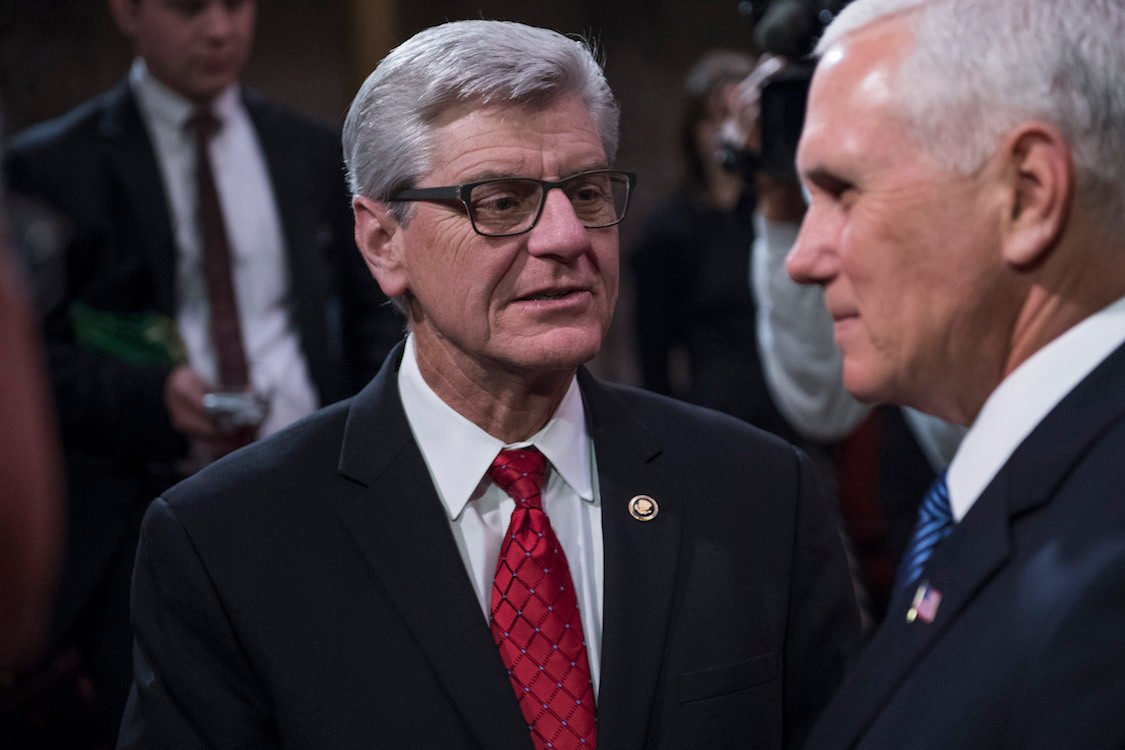Mississippi Gov. Phil Bryant (R) signed a law that would ban abortions at six weeks into pregnancy on Thursday. Advocates for this ban refer to it as a ‘heartbeat bill’ because because it bans abortions after a doctor can detect a fetal heartbeat, which is usually at six weeks.
This means many women and trans and nonbinary people, who wouldn’t know they were pregnant before six weeks into pregnancy, would be unable to get an abortion in Mississippi. There are exceptions for this ban, such as to prevent the pregnant person’s death or to “prevent the serious risk of the substantial and irreversible impairment of a major bodily function” of the pregnant person.
Gov. Bryant has always been straightforward in his intent to curb people’s access to abortion. In a 2014 state of the state speech, Bryant said, “On this unfortunate anniversary of Roe v. Wade, my goal is to end abortion in Mississippi.”
Mississippi joins a long list of states that have introduced such bills and in some cases, passed them only to have them blocked by the courts or vetoed by the governor. In 2019, 11 states have already introduced six-week abortion ban bills. A federal judge blocked temporarily blocked Kentucky’s six-week ban this month. Legislation on the six-week ban has advanced in Georgia, Missouri, Ohio and Tennessee, according to the Guttmacher Institute.
Over the years, anti-choice advocates have disagreed on whether six-week abortion bans were the most realistic route to restricting abortion, compared to the 20-week abortion ban. Anti-choice groups have admitted that that their plan is to get a circuit court ruling that can bring the issue to the U.S. Supreme Court by introducing these kinds of abortion bans, instead of imposing such restrictions such as waiting periods.
Denise Burke, senior counsel at Alliance for Defending Freedom, said at an Evangelicals for Life conference last year, that the organization wants to focus on enacting abortion bans even earlier than 20 weeks in the hope that reproductive rights groups will fight the bans. Burke said they’re focusing on bans in states where “we think the governors and the A.G.s and the legislatures are going to do the best job at defending these laws.”
Elizabeth Nash, senior state issues manager in the Guttmacher Institute’s said that the the addition of Brett Kavanaugh to the U.S. Supreme Court has provided a recent catalyst behind the drive to impose these six-week bans, but notes that it isn’t the only factor involved. Such bans have been a mainstay in attacks on reproductive rights since 2011.
In an email to ThinkProgess, Nash said, “For some of the states, such as Mississippi, Ohio and Missouri where the bans are moving, we have seen them adopt restriction after restriction. So much so, that really the only thing left is an abortion ban. And there also seems to be a keeping-up-with-the-Joneses mentality, that these states are each trying to be the most pro-life state in the country.”
Mississippi recently passed a law that would ban most abortions after 15 weeks, which a federal judge struck down this month.
By pushing for six-week bans, anti-choice advocates are also giving up the conceit that they are only concerned about abortions later in pregnancy — which is a dangerous and false narrative in itself. If not for laws restricting abortion access, such as waiting periods and ultrasound mandates, as well as clinic closures, it would be easier for people to get earlier abortions. Moreover, there are health complications that can lead to abortion later in a pregnancy.
But anti-choice advocates have revealed through their support of six-week bans that their goal is not only to end some abortions they spread misinformation about, but to ban all abortions, Nash wrote this week for an analysis of these bans on the Guttmacher website.
The six-week ban will be challenged by the Center for Reproductive Rights, a legal advocacy organization that focuses on reproductive rights.
Hillary Schneller, staff attorney at the Center for Reproductive Rights told the New York Times, “This ban is one of the most restrictive abortion bans signed into law, and we will take Mississippi to court to make sure it never takes effect.”


